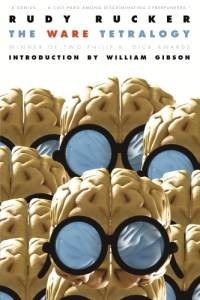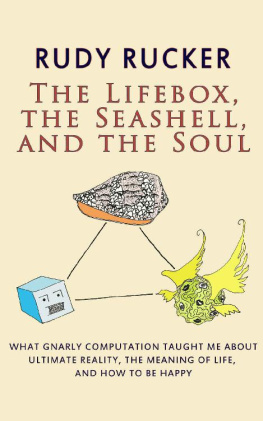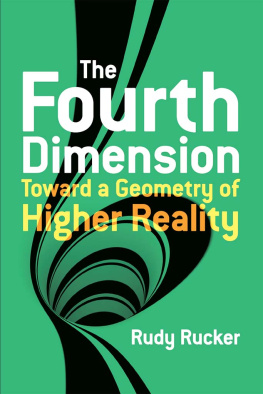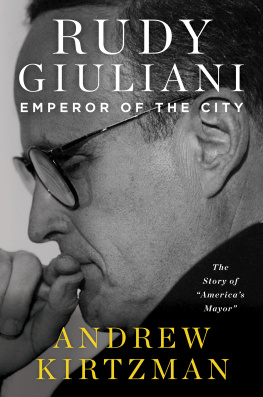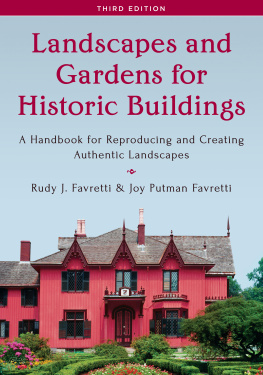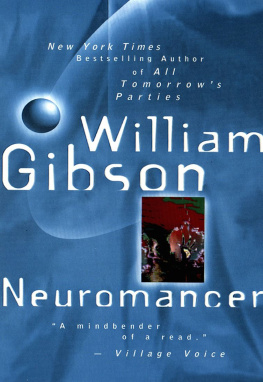Rudy Rucker - The Ware Tetralogy
Here you can read online Rudy Rucker - The Ware Tetralogy full text of the book (entire story) in english for free. Download pdf and epub, get meaning, cover and reviews about this ebook. year: 2010, genre: Science fiction. Description of the work, (preface) as well as reviews are available. Best literature library LitArk.com created for fans of good reading and offers a wide selection of genres:
Romance novel
Science fiction
Adventure
Detective
Science
History
Home and family
Prose
Art
Politics
Computer
Non-fiction
Religion
Business
Children
Humor
Choose a favorite category and find really read worthwhile books. Enjoy immersion in the world of imagination, feel the emotions of the characters or learn something new for yourself, make an fascinating discovery.
- Book:The Ware Tetralogy
- Author:
- Genre:
- Year:2010
- Rating:5 / 5
- Favourites:Add to favourites
- Your mark:
- 100
- 1
- 2
- 3
- 4
- 5
The Ware Tetralogy: summary, description and annotation
We offer to read an annotation, description, summary or preface (depends on what the author of the book "The Ware Tetralogy" wrote himself). If you haven't found the necessary information about the book — write in the comments, we will try to find it.
The Ware Tetralogy — read online for free the complete book (whole text) full work
Below is the text of the book, divided by pages. System saving the place of the last page read, allows you to conveniently read the book "The Ware Tetralogy" online for free, without having to search again every time where you left off. Put a bookmark, and you can go to the page where you finished reading at any time.
Font size:
Interval:
Bookmark:
The Ware Tetralogy
Rudy Rucker
Sui Generis: A Testimony
Genuinely sui generis novelists operate at an inherent disadvantage, and all the more so in any so-called genre.
Genre is that dubious bargain whereby the reader is offered (for our present purposes) a novel, a form whose very name promises a new experience, but offers, in genre, the implicit and crucial promise of the repetition of previous pleasures.
Rudy Rucker has never trafficked in that repetition, and while he unabashedly loves the genre in which he tends to be marketed, he transcends it, or perhaps engulfs it, in his singularity. Youll see this said about all too many science fiction writers, given noveltys supposed (and largely spurious, in my view) importance to the genre, but of Rudy its quite literally true. He is one splendidly odd duck, balanced between pure mathematics on the one hand and spontaneous bop prosody on the other, while uncounted further hands (or paws, in some cases) flicker in from their individual Hilbert spaces, bearing cups, wands, alien sex toys, artifacts out of Roadrunner cartoons, terrible jokes, gleefully fell dooms, and lubricating dabs of mentholated ichor.
Scarily bright, and a card-carrying Holy Fool whos managed to fall off every cliff but the only really wrong ones, he used to frighten me.
In part, no doubt, because hes the only higher mathematician Ive ever known, while I am myself virtually an innumerate. I knew from the very start of our acquaintance (from before, actually, as I read him before I met him) that he habitually, effortlessly, visited realms I was literally incapable of envisioning, let alone visiting. He also frightened me because, though generally convivial, he seemed to me to teeter atop an angelic pinhead of purest Random, causing me the constant apprehension that he might at any second do or say literally anything at all. As I was secretly attempting to negotiate my own life and literary career with the emergency brake on, this made me complexly uneasy. He seemed starry-eyed with the sheer joy of forgetting the brakes entirely.
I found him unsettling in another way as well, though that was not so much about him as about something we had in common. Being at least a decade older than the rest of our cyberpunk cohort, we were both veterans of (ahem) the Sixties. Which was to say that we had once been somewhere very strange and new indeed, but that that tide had somehow receded, leaving us in some new but actually markedly unstrange iteration of a world we had once expected to change utterly. Whenever I ran into Rudy, over the first decade or so of my career, I worried that we were both actually too old for this. But then Id note the shiver of angelic pinhead-wobble, and in some paradoxical way be comforted thereby. (And at the time, Rudy wrote to me recently, I thought we were jaded rous!)
Before I read or met Rudy, Id lived for several seasons in Washington, D.C., with a roommate who at some point went up to New York to see a great retrospective show of the Surrealists, kindly and hugely formatively bringing me the shows catalog as a gift. I had heard of Surrealism, but had never really put together what it was. That catalog became a sort of Rosetta Stone for me, a way of decoding and assembling a great many very diverse things that I had encountered in art and literature, things I had known were similar, in some way, but without really understanding how.
The capital-s Surrealism, Surrealism, was splendid stuff, but I now recognized a similar but lower-case impulse in virtually everything that had ever attracted me in the popular arts. I saw it in Mad Magazine (and particularly in its imitators), in Forrest J. Ackermans gloriously cheesy Famous Monsters Of Filmland, in Rod Serlings The Twilight Zone, in Zap Comics. And I saw it, of course, in the prose science fiction I had grown up with: a folk surrealism, a street surrealism, entirely free of Bretons faux-papal excommunications and other tedious hi-jinx. It was, I saw, to certain forms of popular art, and most particularly to the flavors of science fiction that had worked best for me, the equivalent of the ethanol molecules in an alcoholic beverage. So I filed that one away, and went about my business, such as it was.
Later, encountering first the fiction and then its author, I took it instantly for granted that in Rudy Rucker I found an exemplar of that very thing, a natural-born American street surrealist, bordering at times on a practitioner of Art Brute.
Rudys fiction has a much higher percentage of surrealism molecules than most fiction, science or otherwise. It has, as moonshiners say when they swirl whiskey in a glass, in order to closely observe how it settles back down the sides of the glass, good legs. Rudys fiction is probably a bit too strong, in that regard, for some readers, but even the hard stuff, let me assure you, is an enjoyably acquired taste.
And Im no longer afraid of Rudy. Were both (even) older, and vibrate now at more authentically geezeroid frequencies. And I no longer feel that the world outside the window isnt as freaky as the ones we glimpsed back in the Sixties. It is. With bells on.
Now go and read Rudy Rucker, in the 21st century. Dudes sui generis. And has good legs.
17 December 2008, Vancouver
Family Trees
Software
For Al Humboldt, Embry Rucker, and Dennis Poague
1
Cobb Anderson would have held out longer, but you dont see dolphins every day. There were twenty of them, fifty, rolling in the little gray waves, wicketting up out of the water. It was good to see them. Cobb took it for a sign and went out for his evening sherry an hour early.
The screen door slapped shut behind him and he stood uncertainly for a moment, dazed by the late afternoon sun. Annie Cushing watched him from her window in the cottage next door. Beatles music drifted out past her.
You forgot your hat, she advised. He was still a good-looking man, barrel-chested and bearded like Santa Claus. She wouldnt have minded getting it on with him, if he werent so . . .
Look at the dolphins, Annie. I dont need a hat. Look how happy they are. I dont need a hat and I dont need a wife. He started toward the asphalt road, walking stiffly across the crushed white shells.
Annie went back to brushing her hair. She wore it white and long, and she kept it thick with hormone spray. She was sixty and not too brittle to hug. She wondered idly if Cobb would take her to the Golden Prom next Friday.
The long last chord of Day in the Life hung in the air. Annie couldnt have said which song she had just heardafter fifty years her responses to the music were all but extinguishedbut she walked across the room to turn the stack of records over. If only something would happen, she thought for the thousandth time. I get so tired of being me.
At the Superette, Cobb selected a chilled quart of cheap sherry and a damp paper bag of boiled peanuts. And he wanted something to look at.
The Superette magazine selection was nothing compared to what you could get over in Cocoa. Cobb settled finally for a love-ad newspaper called Kiss and Tell. It was always good and weird . . . most of the advertisers were seventy-year-old hippies like himself. He folded the first-page picture under so that only the headline showed. PLEASE PHEEZE ME.
Funny how long you can laugh at the same jokes, Cobb thought, waiting to pay. Sex seemed odder all the time. He noticed the man in front of him, wearing a light-blue hat blocked from plastic mesh.
If Cobb concentrated on the hat he saw an irregular blue cylinder. But if he let himself look through the holes in the mesh he could see the meek curve of the bald head underneath. Skinny neck and a light-bulb head, clawing in his change. A friend.
Font size:
Interval:
Bookmark:
Similar books «The Ware Tetralogy»
Look at similar books to The Ware Tetralogy. We have selected literature similar in name and meaning in the hope of providing readers with more options to find new, interesting, not yet read works.
Discussion, reviews of the book The Ware Tetralogy and just readers' own opinions. Leave your comments, write what you think about the work, its meaning or the main characters. Specify what exactly you liked and what you didn't like, and why you think so.

